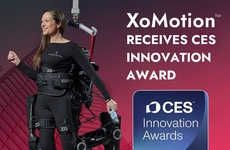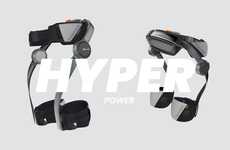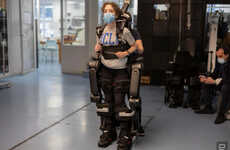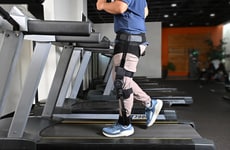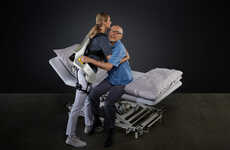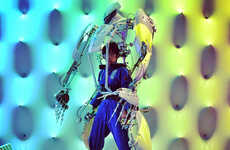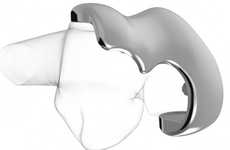
The Walk Again Project Will Launch at the 2014 World Cup
References: virtualreality.duke.edu & techcrunch
The Walk Again Project will officially launch at the 2014 World Cup in Brazil. Originally developed by a team of researchers at Duke University, the venture will enable a paralyzed Brazilian teenager to kick a soccer ball via a motor-baed exoskeleton and specialized helmet.
While exoskeletons have been used for some time, the World Cup demonstration will mark one of the most public displays of the technology and its ability to allow users to control the device by way of neural cues.
By allowing a paralyzed individual to partake in the physical launch of the soccer ball, the Walk Again Project is opening the doors to new forms of participation within professional athletic forums.
While exoskeletons have been used for some time, the World Cup demonstration will mark one of the most public displays of the technology and its ability to allow users to control the device by way of neural cues.
By allowing a paralyzed individual to partake in the physical launch of the soccer ball, the Walk Again Project is opening the doors to new forms of participation within professional athletic forums.
Trend Themes
1. Neural-controlled Exoskeletons - Developing exoskeletons that can be controlled by neural cues opens up opportunities for various industries, such as healthcare, rehabilitation, and sports.
2. Public Display of Exoskeleton Technology - Public demonstrations of exoskeleton technology, like the one at the 2014 World Cup, create visibility and awareness, leading to potential innovations in fields like entertainment, events, and sports.
3. Inclusive Professional Athletics - The Walk Again Project's demonstration of enabling paralyzed individuals to participate in sports highlights the potential for creating inclusive professional athletic opportunities, presenting innovative possibilities in the sports industry.
Industry Implications
1. Healthcare - The development of neural-controlled exoskeletons has the potential to revolutionize healthcare practices, enabling enhanced mobility and rehabilitation for patients with mobility impairments.
2. Rehabilitation - Neural-controlled exoskeletons offer disruptive innovation opportunities in the rehabilitation industry by providing new and advanced methods for physical therapy and assisting patients in their recovery process.
3. Sports - The inclusive professional athletic possibilities created by the Walk Again Project's exoskeleton demonstration pave the way for disruptive innovation in the sports industry, such as adaptive sports and enhanced player performance.
5.1
Score
Popularity
Activity
Freshness

